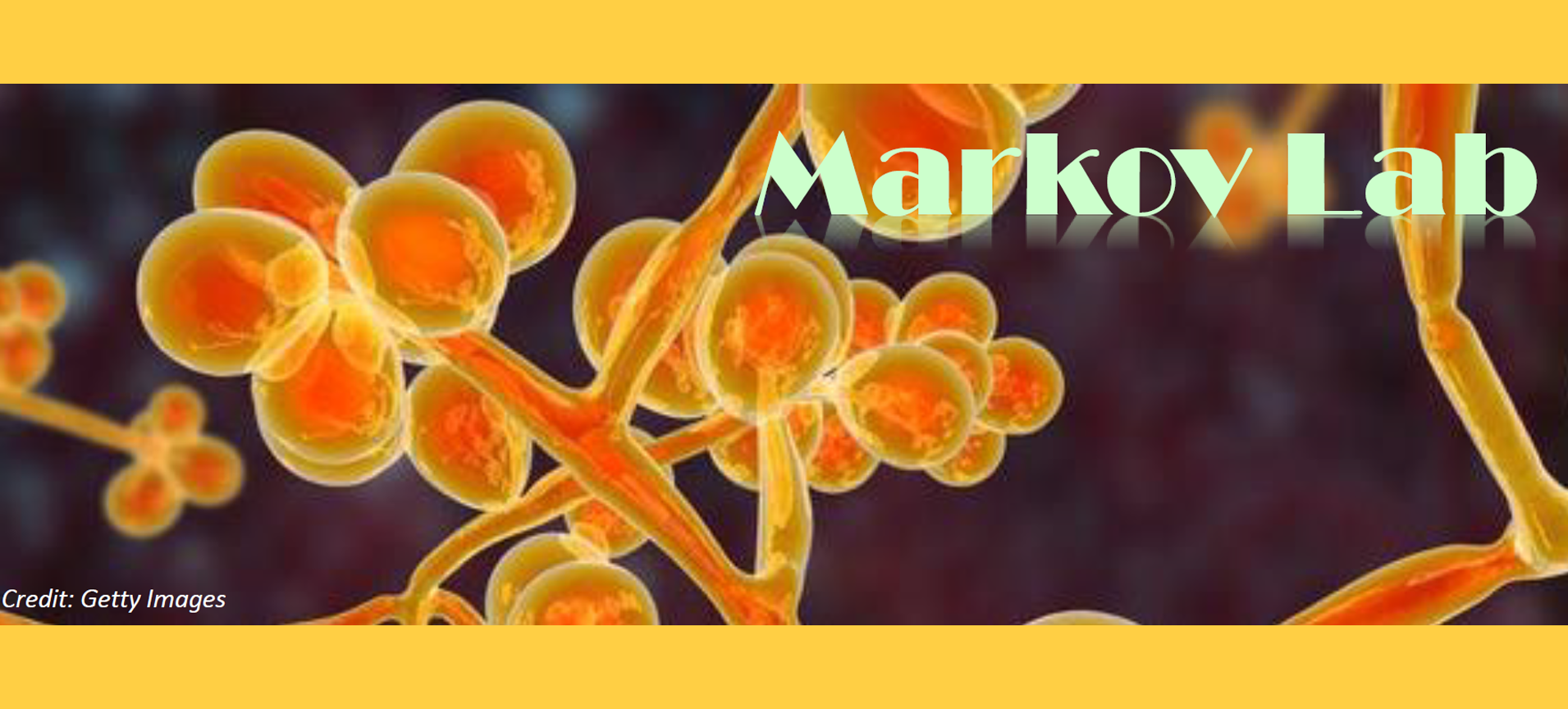About Dr. Markov
About Dr. Markov
About Dr. Markov
 Dmitriy Markov, PhD
Dmitriy Markov, PhD
Assistant Professor
Science Center 203B
856-566-6915 - office
856-566-6403 - lab
markovdm@rowan.edu
Education
Institute of Molecular Genetics, Russian Academy of Sciences
Moscow, Russia
PhD in Biology, 2000
Research Profile
My research is focused on how mitochondrial gene expression is regulated in pathogenic yeast, including Candida albicans and Candida auris.
Mitochondria are powerhouses of the cell that are responsible for deriving energy from the food by effectively oxidizing organic sources with the oxygen. They originate from ancient aerobic bacteria and, along with the nucleus, possess their own genome. Unlike the nuclear gene expression, which is primarily regulated at the level of transcription, the mitochondrial RNA synthesis is controlled on post-transcriptional level, through the regulation of stability and maturation of transcripts, but the molecular mechanisms that govern those processes are still poorly understood. Since the perturbations of mitochondrial metabolism in pathogenic yeast directly influence the outcomes of anti-fungal drug treatments and the resistance of pathogens to host immune response, the understanding of such mechanisms is crucial for the discovery of potential drug targets and development of new anti-fungal therapies.
Recently, we have identified a novel, yeast-specific protein Rmd9 that plays a key role in the stability and processing of 3’ ends of mitochondrial mRNAs. It belongs to an ancient family of so-called pentatricopeptide repeat (PPR) proteins that are involved in all aspects of yeast mitochondrial gene synthesis, including the availability of mitochondrial mRNAs for translation, and which loss of function often leads to a complete disruption of respiratory activity. In our lab, we use a variety of biochemical, genetic, molecular and cell biology approaches, including RNA-protein footprinting, electrophoresis mobility shift assays, fluorescence in vivo, protein and organelle isolation, target-specific pulldowns, assembly and characterization of transcription and other functional RNA-protein complexes in vitro, high resolution chromatography and mass-spectrometry to further elucidate the details of how this complex system works and to identify its functional components.
